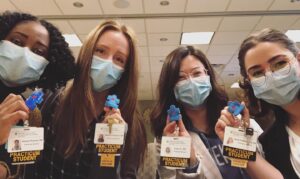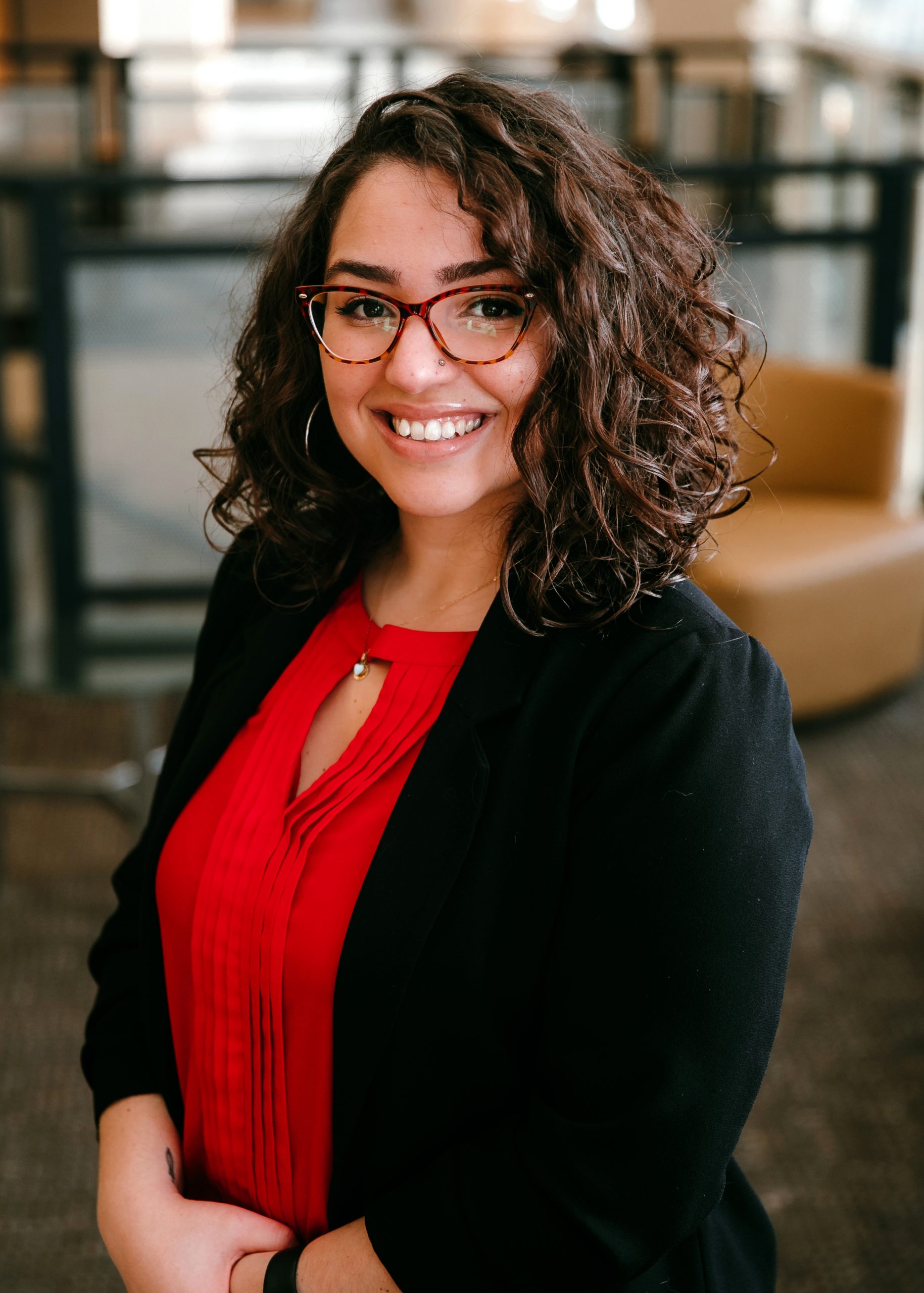One of the Thompson Center’s primary missions is to train the next generation of leaders in the field of autism care. One aspect of this training mission is providing a learning environment for students pursuing their doctoral degrees in psychology. By providing these future child psychologists real-world hands-on experience working with patients, the Thompson Center is helping to increase the number of trained autism experts around the country to help provide more resources for more families.

A typical doctoral trainee will spend one year training at most practicum sites before choosing to move on with their career. On occasion, a doctoral trainee may choose to return for a second year of training. Until this year, the Thompson Center has had one graduate trainee return for a third year. However, this year the Thompson Center has four talented graduate trainees returning for an unprecedented third year. This speaks to both the high-quality training opportunities the Thompson Center provides as well as the dedication of these future psychologists to maximize their training to become the best care providers possible. Over the next few weeks, we will meet these four doctoral interns. This week we’ll learn more about Sarah de Marchena.
When did you arrive at the Thompson Center?
I started my practicum experience at the Thompson Center in the summer of 2019.
What is your bio and educational background before the TC?
I graduated in 2015 with a bachelor’s degree in psychology from Rutgers University in New Jersey. My post-baccalaureate and graduate training have provided me with opportunities to engage in research with schools. Specifically, as a research coordinator at the Rutgers Social-Emotional and Character Development Lab, I had the opportunity to consult with public schools in New Jersey to implement a school-wide social-emotional learning (SEL) intervention and adapt lessons for their special education classes. Currently, I am a fourth-year doctoral candidate in the MU College of Education school psychology program.
What are your career interests/goals? What do you hope to be doing professionally in 5-10 years?
Broadly, I am interested in working with Spanish-speaking and other minoritized families to increase access to early childhood health and mental health care. Additionally, I’d love to receive more specialized training as a bilingual psychologist so that I can better serve the Spanish-speaking community. In 5-10 years, I still see myself engaged in culturally responsive assessment and psychological evaluations for both children with special healthcare needs and children with internalizing and externalizing behaviors.
What created the passion within you to pursue a career in this field?
The disparities in the prevalence of ASD diagnoses and access to services for racial/ethnic minoritized children is a significant reason for my passion to pursue a career in this field. Further, every day that I get to work with, and support families is a great day for me.
Why did you decide to return to the Thompson Center for a third year of training?
So many reasons! I get to work with some of my favorite people including my awesome cohort (pictured above), other trainees, faculty, and staff, all of whom I learn an incredible amount from. My training at the TC prepares me to work with other disciplines, support my team members, and provide family-centered and quality care. Every year I’ve spent here has developed my autonomy and confidence in those abilities.
How do you think your time at the TC will influence the direction of your career?
My training at the TC has prepared me to work specifically with children with special healthcare needs, neurodiverse populations, and children with mental health concerns. Wherever I end up, I am sure I will be working in the area of psychological evaluations with these populations.
What is the most valuable thing you have learned while working at the TC so far?
The most valuable thing I have learned that significantly influences my practice is how to work collaboratively on teams and with other disciplines. Aside from working with families, this is my favorite part of the job and I could not do it well without my team members.
What do you hope to learn and/or accomplish in the rest of your time training at the TC?
I’m also interested in training and supervision. Dr. Brooks (my supervisor) and I have been preparing to focus on my goal of developing my supervision skills during my last year at the TC.
Any last thoughts about working at the TC?
Beyond the quality training and professional support, I have also been fortunate to find life-long mentors at this center. One of my mentors once said, “If you do not learn about yourself in this process, you are not being challenged enough.” I’ve stepped into myself in ways I’d never imagined possible, and I recognize how my relationships here have facilitated that process for me. I will forever be grateful for my time here!



